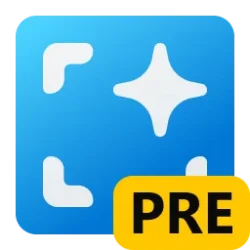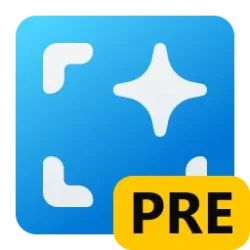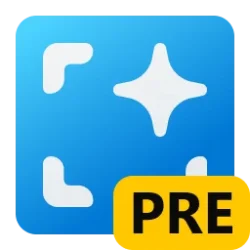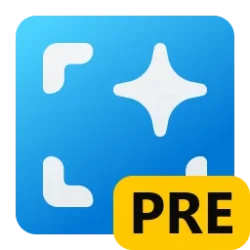another guy
Member
- Local time
- 1:18 AM
- Posts
- 2
- OS
- Windows 11 Pro
Overview: How can you keep 3rd party software vendor from using your Paid personal or 365 OneDrive subscription for their files?
Issue: A Software Application Vendor is using up your OneDrive space with program related files. You now see errors loading their software. You may see issues with OneDrive. Slow sync or space limitation may keep you from accessing or saving your documents online. OneDrive may stop syncing.
For decades Windows software application vendors have normally installed to C:\Program Files\<app>\ (Program Files (X86)\<app>\ or other local hard drive locations. They now oddly design their software to add Gigabytes of 'vendor' file content to C:\<username>\Documents\<app>\locations. This might not be apparent initially. This may be because of security concerns (licensed user John but nobody else) or just poor application design. This then adds program files (sync) to your OneDrive by design in Windows 11 (or earlier versions).
You normally log on with email accounts (MSN etc.) now or purposely use local named accounts (legacy). This issue refers to OneDrive usage issues. OneDrive can be used with either logon type. This is not necessarily about business devices, shared network storage or Active Directory. I will assume a workgroup setup. Your precious 512GB C drive disk size. A laptop that you use anywhere.
When you use a free OneDrive or even a 'paid' 1TB 365 OneDrive subscription of greater size, Office files and other 'user' content you create or store uses your local profile \Documents folder first and will sync to the OneDrive (cloud) as well. If you use an email logon on multiple Windows 11 computers your files saved to your local folders can then always be available (legacy username logon not part of this issue) to any logon. When you create a new user logon on a new device OneDrive will start to sync your files almost immediately when your profile goes on line. Eventually it tells you you are sync'd up. Saving an office file is then broadly available (example) to your email profile logon. We will not refer to multiple device users for this discussion. We can assume you might have an administrator account separate from a user account that is able to install licensed software. An administrator account is not necessarily a requirement for using the 3rd party application.
Microsoft defines this as:
"OneDrive is a cloud-based storage service provided by Microsoft. It allows you to store your files and documents in the cloud so that you can access them from anywhere on any device. You can also share your files with others and collaborate on them in real-time. OneDrive also works as the storage backend of the web version of Microsoft Office."
The emphasis is "your".
The issue I am concerned with is any 3rd party vendor using up your OneDrive storage or filling the max size to the limit with 'program related files'. You might then possibly no longer be able to use your OneDrive in this situation or the OneDrive sync will be time consuming. This may even cause a network file copy lag in how their application loads or installs (across the internet). Your program may then not work properly if you are offline or even if you have plenty of local storage left. We will not consider the other devices using the log on account for now, but it can be applicable.
When you open a support issue with this vendor application showing errors - their solution is that you un-sync OneDrive (Documents folder) from your device so it will stop 'their' program from using up 'your' OneDrive cloud storage. This is not a solution but a way for them not to have to modify or re-design their software. Maybe a registry edit could cure this - but a lot of users do not go there. Even if you have proudly used the registry since Windows 95, this is not a normal thing a user should so. Many a computer has been deep sixed with regedit.
The traditional C:\Program Files..\ application install location method we are familiar with has been 'modernized'. It now becomes your issue - not theirs.
All of your document or creation storage and sync is circumvented along with the rest of your logon devices.
I am open to discussing suggestions or experiences in overcoming this problem. Paying for storage (365 subscriptions) or additional OneDrive size should not be required for poorly designed software applications. Having to restore your Windows OS can cause blindness!
Issue: A Software Application Vendor is using up your OneDrive space with program related files. You now see errors loading their software. You may see issues with OneDrive. Slow sync or space limitation may keep you from accessing or saving your documents online. OneDrive may stop syncing.
For decades Windows software application vendors have normally installed to C:\Program Files\<app>\ (Program Files (X86)\<app>\ or other local hard drive locations. They now oddly design their software to add Gigabytes of 'vendor' file content to C:\<username>\Documents\<app>\locations. This might not be apparent initially. This may be because of security concerns (licensed user John but nobody else) or just poor application design. This then adds program files (sync) to your OneDrive by design in Windows 11 (or earlier versions).
You normally log on with email accounts (MSN etc.) now or purposely use local named accounts (legacy). This issue refers to OneDrive usage issues. OneDrive can be used with either logon type. This is not necessarily about business devices, shared network storage or Active Directory. I will assume a workgroup setup. Your precious 512GB C drive disk size. A laptop that you use anywhere.
When you use a free OneDrive or even a 'paid' 1TB 365 OneDrive subscription of greater size, Office files and other 'user' content you create or store uses your local profile \Documents folder first and will sync to the OneDrive (cloud) as well. If you use an email logon on multiple Windows 11 computers your files saved to your local folders can then always be available (legacy username logon not part of this issue) to any logon. When you create a new user logon on a new device OneDrive will start to sync your files almost immediately when your profile goes on line. Eventually it tells you you are sync'd up. Saving an office file is then broadly available (example) to your email profile logon. We will not refer to multiple device users for this discussion. We can assume you might have an administrator account separate from a user account that is able to install licensed software. An administrator account is not necessarily a requirement for using the 3rd party application.
Microsoft defines this as:
"OneDrive is a cloud-based storage service provided by Microsoft. It allows you to store your files and documents in the cloud so that you can access them from anywhere on any device. You can also share your files with others and collaborate on them in real-time. OneDrive also works as the storage backend of the web version of Microsoft Office."
The emphasis is "your".
The issue I am concerned with is any 3rd party vendor using up your OneDrive storage or filling the max size to the limit with 'program related files'. You might then possibly no longer be able to use your OneDrive in this situation or the OneDrive sync will be time consuming. This may even cause a network file copy lag in how their application loads or installs (across the internet). Your program may then not work properly if you are offline or even if you have plenty of local storage left. We will not consider the other devices using the log on account for now, but it can be applicable.
When you open a support issue with this vendor application showing errors - their solution is that you un-sync OneDrive (Documents folder) from your device so it will stop 'their' program from using up 'your' OneDrive cloud storage. This is not a solution but a way for them not to have to modify or re-design their software. Maybe a registry edit could cure this - but a lot of users do not go there. Even if you have proudly used the registry since Windows 95, this is not a normal thing a user should so. Many a computer has been deep sixed with regedit.
The traditional C:\Program Files..\ application install location method we are familiar with has been 'modernized'. It now becomes your issue - not theirs.
All of your document or creation storage and sync is circumvented along with the rest of your logon devices.
I am open to discussing suggestions or experiences in overcoming this problem. Paying for storage (365 subscriptions) or additional OneDrive size should not be required for poorly designed software applications. Having to restore your Windows OS can cause blindness!
My Computer
System One
-
- OS
- Windows 11 Pro





